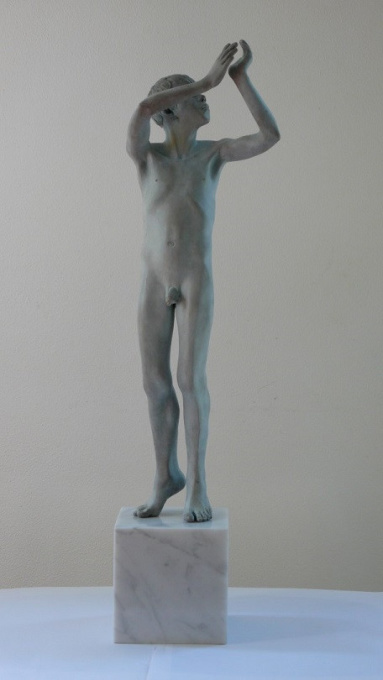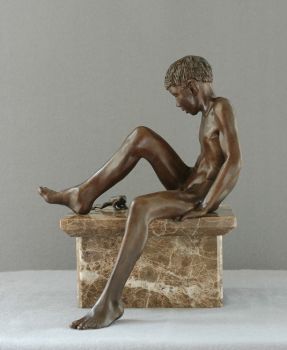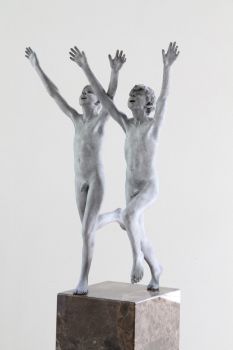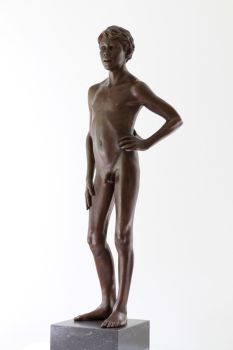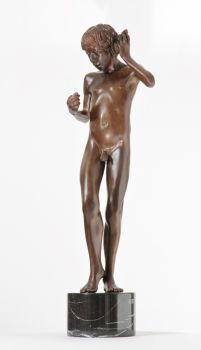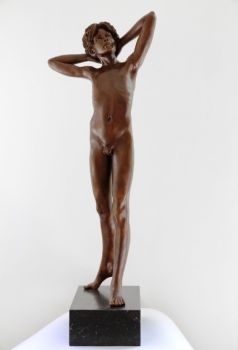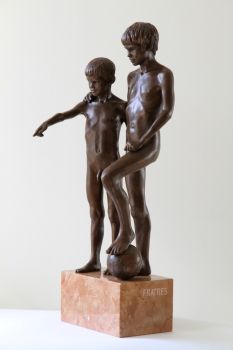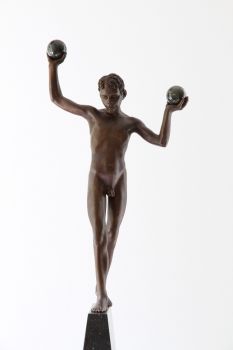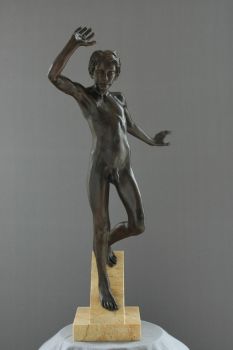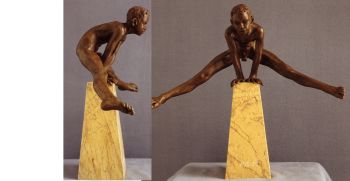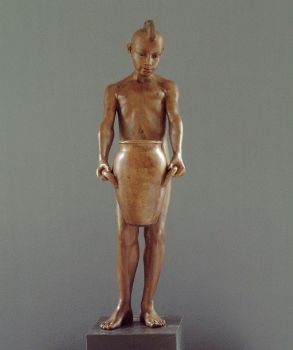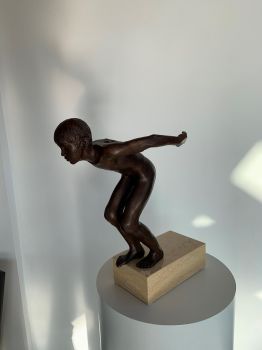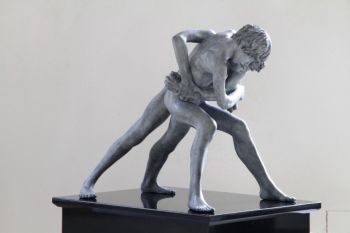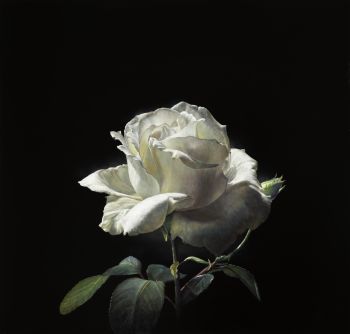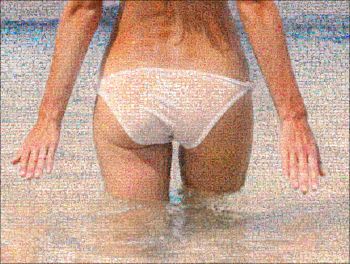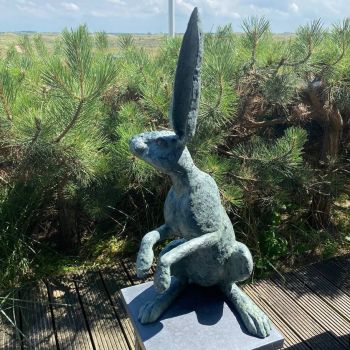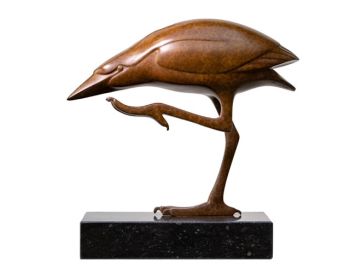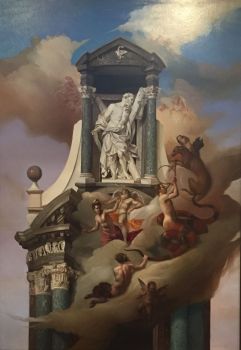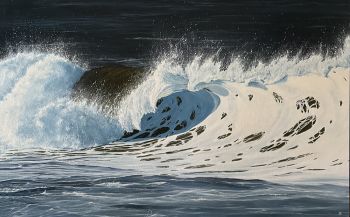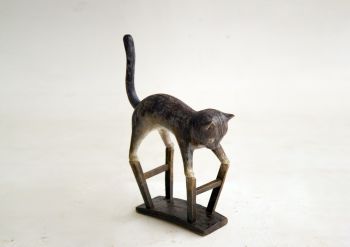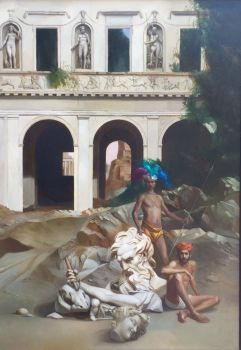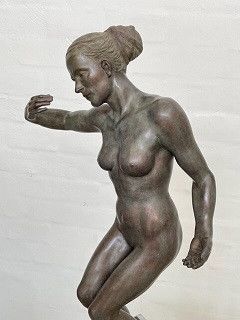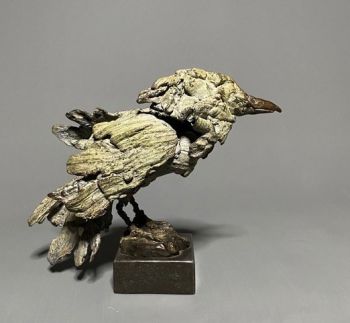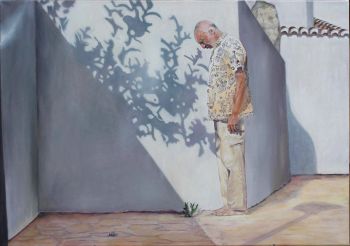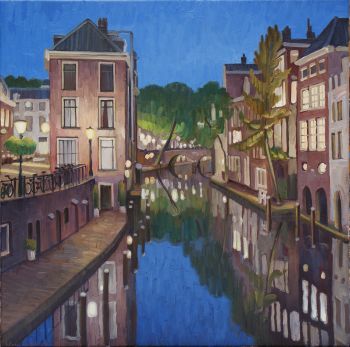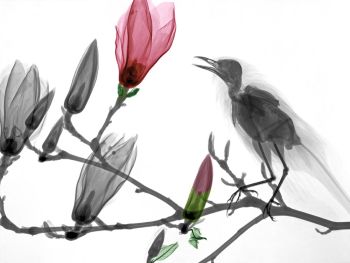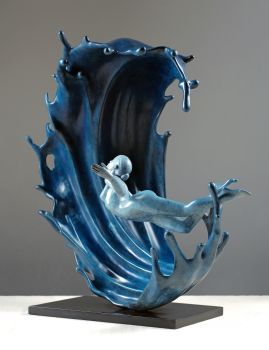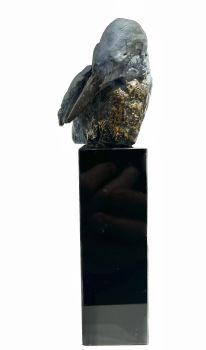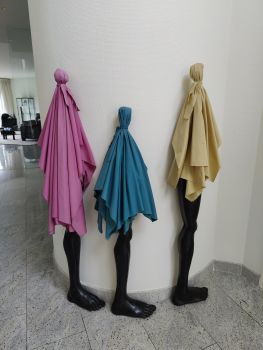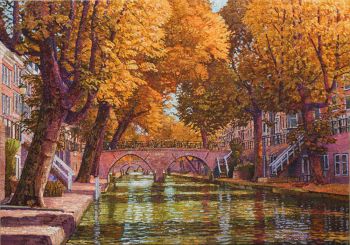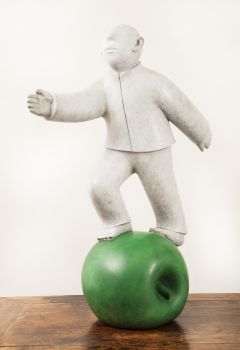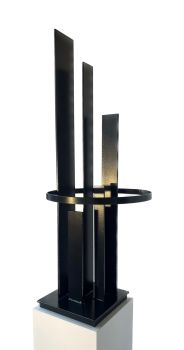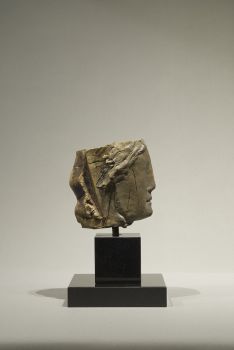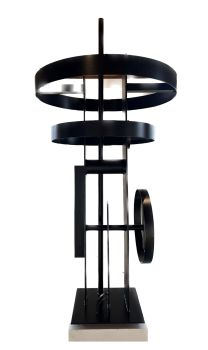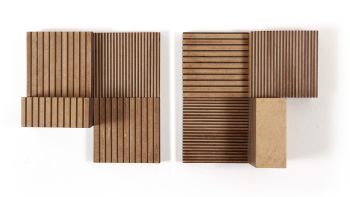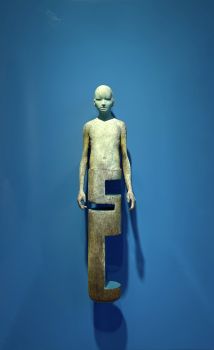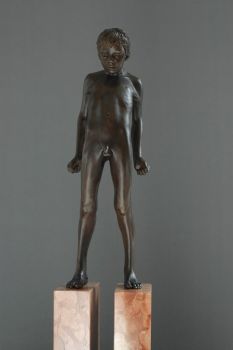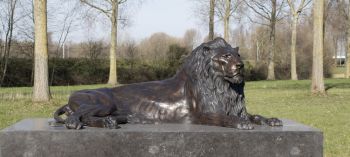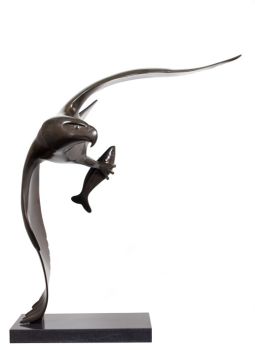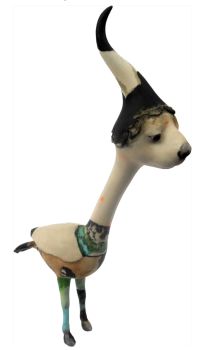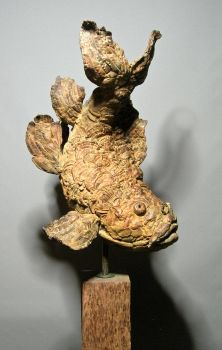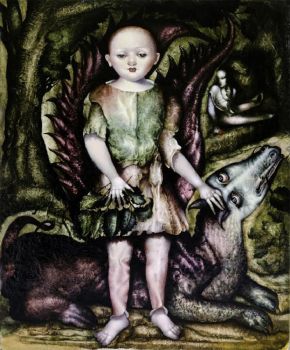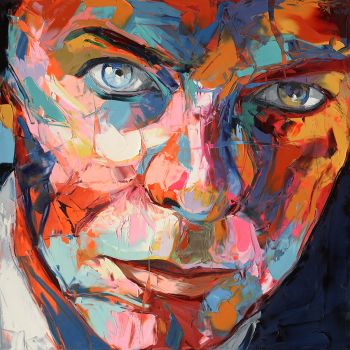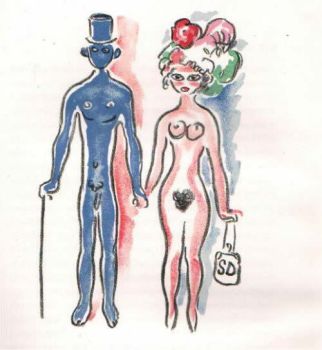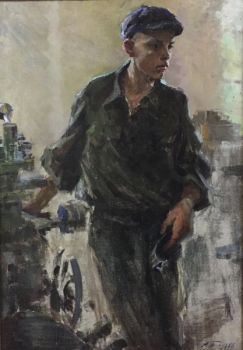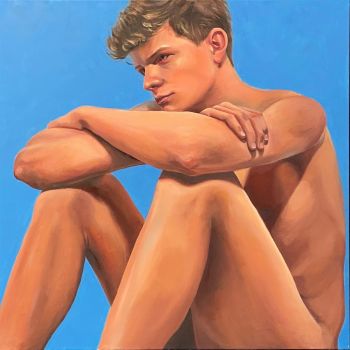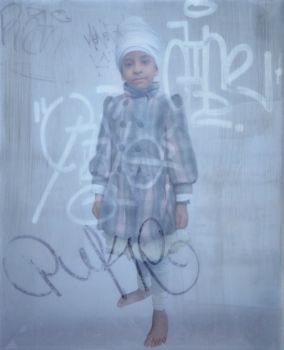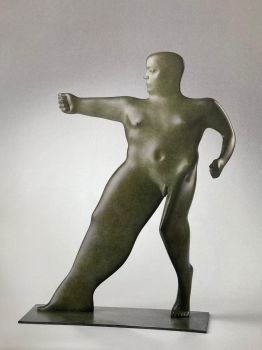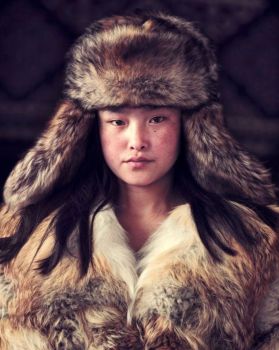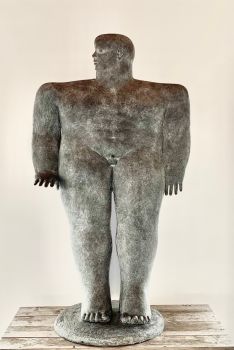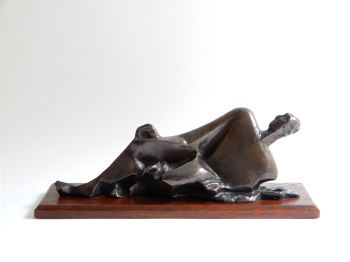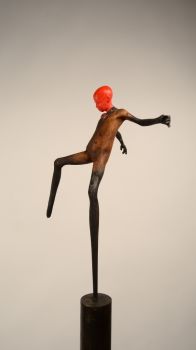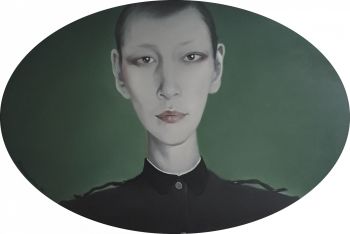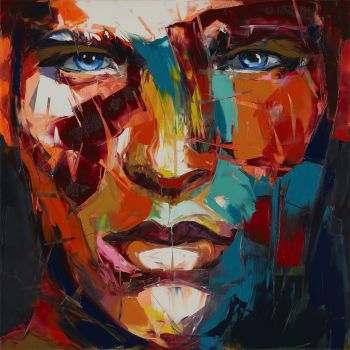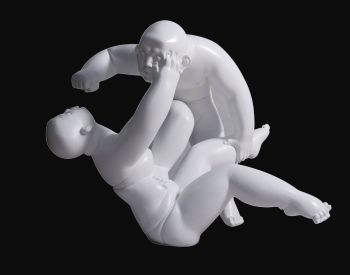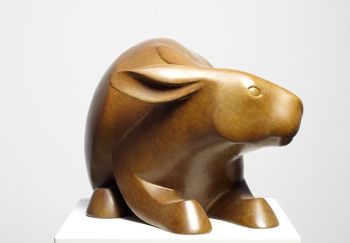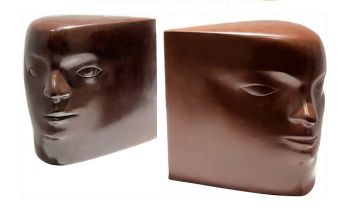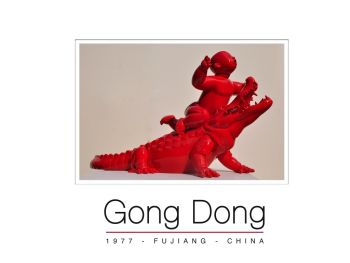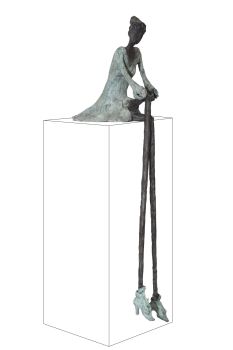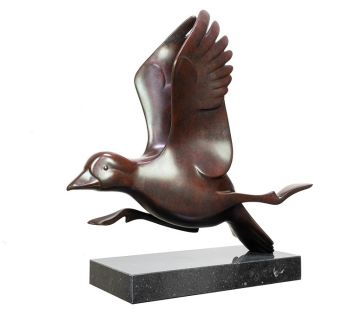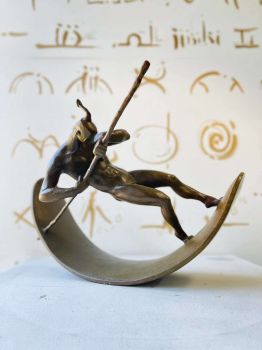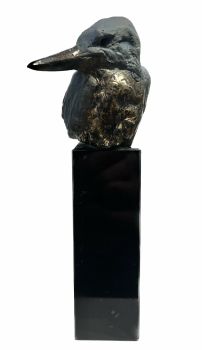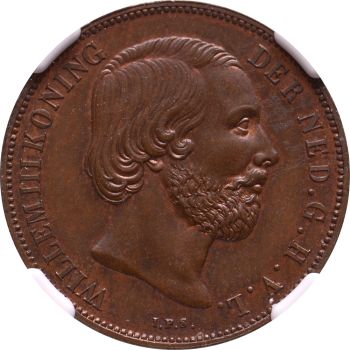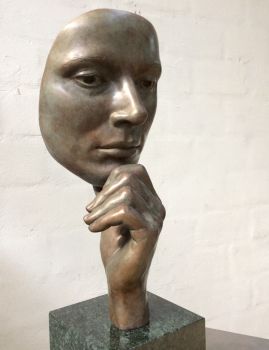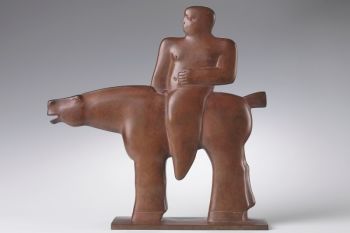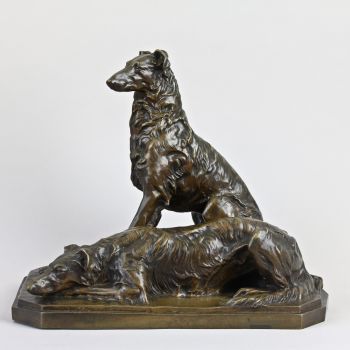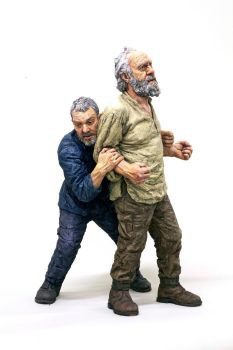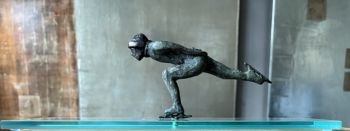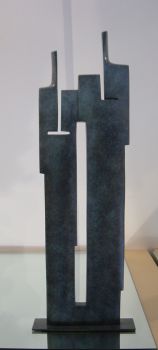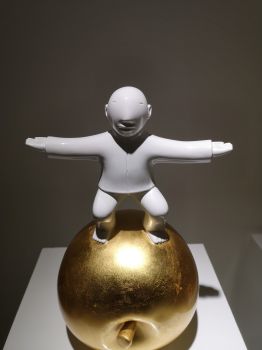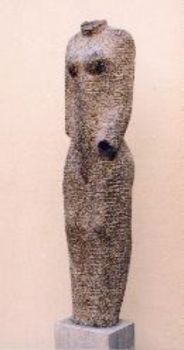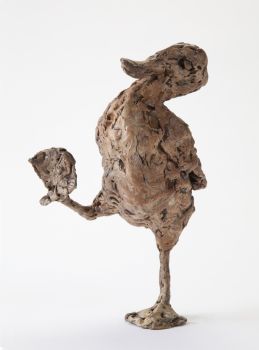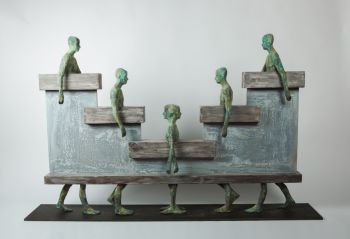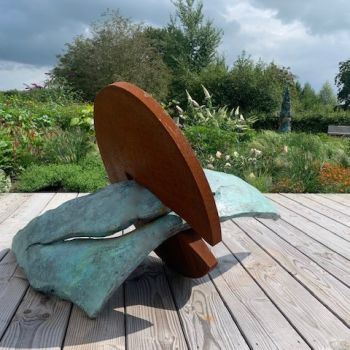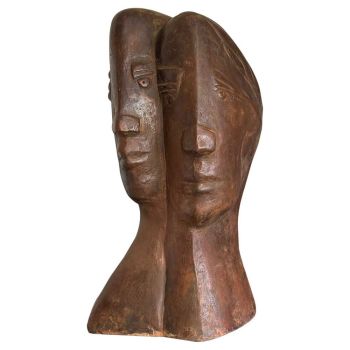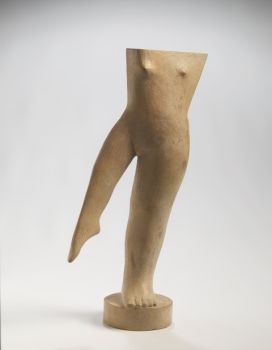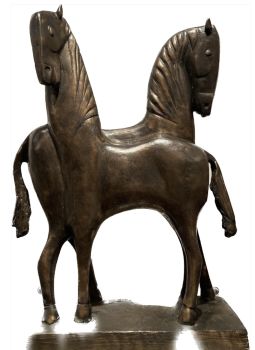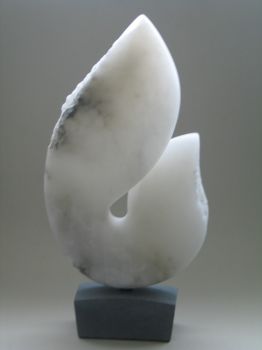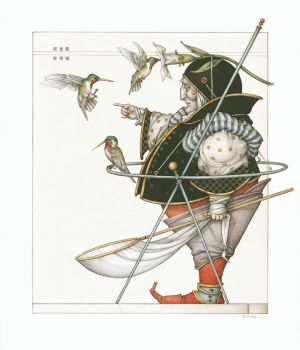Gallulus 2007
Wim van der Kant
BronzeMetal
42 cm
ConditionExcellent
€ 6.680
Morren Galleries Utrecht
- About the artist
Wim van der Kant is a self-taught artist. He was born in Kampen in 1949 and went through school there up to and including HBS(B).
After a false start at the LH in Wageningen ('67) and a year's work as a draughtsman at the Department of Plants of the IJsselmeer polders ('69), he completed the course in handicrafts(B) at the Academy of Visual Education in Amersfoort ('70-'75), with ceramics and spatial forms as main subjects.Although during my training period realism was rather contaminated, in the long run I was not able to leave figurative work. The first sculptures in bronze date from the late 1980s.
Since the mid 90's the work is mainly represented by Galerie Utrecht (Oudegracht 338-340). This gallery is worth a visit. They have a lot of realistic work. This agent ensures that the work is regularly exhibited, and also appears at fairs such as Kunst-RAI, HAF, Lineart etc.
In recent years I have given up part of the work in education in order to be able to concentrate more on making sculptures.
I have no other memory of myself than as someone with an intense need to shape what moves me.
The origins of the work of the last few decades lie somewhere in my seventh year of life, when I suddenly came face to face with Rodin's 'l'Age d'Arain' at an outdoor exhibition in my hometown during the Sunday church. At that moment it revealed itself to me: that is what I want.It has been more difficult than knowing this to hold on to this decision. Actually, I feel more like over the years the decision has stuck to me.
The environment in which I grew up wasn't directly focused on learning unnecessary skills like making art. Certainly not this one. The realistic portrayal of man in this way did not have much resonance, to say the least. Without knowing consciously that I had strayed from my own goal, I went down the road of earning money. It was fortunate that at that time something like the education in Amersfoort came into being.Yet it took at least until I was thirty-five before something of that old need inevitably began to impose itself on me.
When I made things (and I have done that all my life), my hands began to live a life of their own. The first human figures who came into being at that time, for the first time in twenty years, made them, not me.
It took me another year to understand: this is what I really want. It was there all along, and now it's coming out.From the very beginning I have been working on a fairly tight and detailed way of depicting human form. It soon became clear to me that the way in which I preferred to give shape to ideas was best suited to young people. And once on that track, I began to recognise my own motives.
I had something to tell I discovered; I wanted to tell stories of the moment the child acquires his independence, begins to discover outside himself, unfolds and becomes dependent on himself. To make work that is only accessible with an open mind. Not for those who want to put a different symbolism in it, and do not bother to take in those values that are only visible to the viewer with a pure mind.The question arises: 'why boys? The same question, with the same intention, posed to an artist who makes animal sculptures is probably considered embarrassing by most people. The answer is simple: because I am one myself. Gradually I think I am busy transforming some intense feelings and experiences from my own childhood into sculptures. Discovering that you can do things, for yourself. Seeing what your own body means as a vehicle for your soul. The realisation that the whole world is open to you. In that sense my work has more to do with scouting than with eroticism.
While working, I also discovered that I don't do so much with images of women made by men, nor vice versa. They all too quickly become objects of lust. If somewhere I notice an image because of its expressiveness, it's ten to one that the maker has the same sex as the image.
Unfortunately, the realistic imagery lacks objectivity. It is incapable of describing reality in an unambiguous way.
This is closely related to the reservations about nudity. It takes courage and openness from the viewer to want to see that it does not appeal to his feelings of lust, but is used to show an aspect of intense honesty.
Increasingly, I am trying to emphasise the pristine and the demand for respect for it. Respect also for the loneliness of the human being at moments of real importance Anyone who thinks that the work, because it is figurative, is (too) easily accessible should ask themselves what is actually being told.All images are made with a model. However, never expect me to give you names or images of them. That is something completely different from the message the images have. It would harm the personal world of the model, as well as the intention of the image.
In this sense, the model is only a technical side effect.
Are you interested in buying this artwork?
Artwork details
Related artworks
- 1 - 4 / 12
Jean-François Rauzier
Clé de Voûte - Limited edition of 8 2015
Price on requestVilla del Arte Galleries
1 - 4 / 24- 1 - 4 / 24
- 1 - 4 / 24
- 1 - 4 / 24
- 1 - 4 / 12

